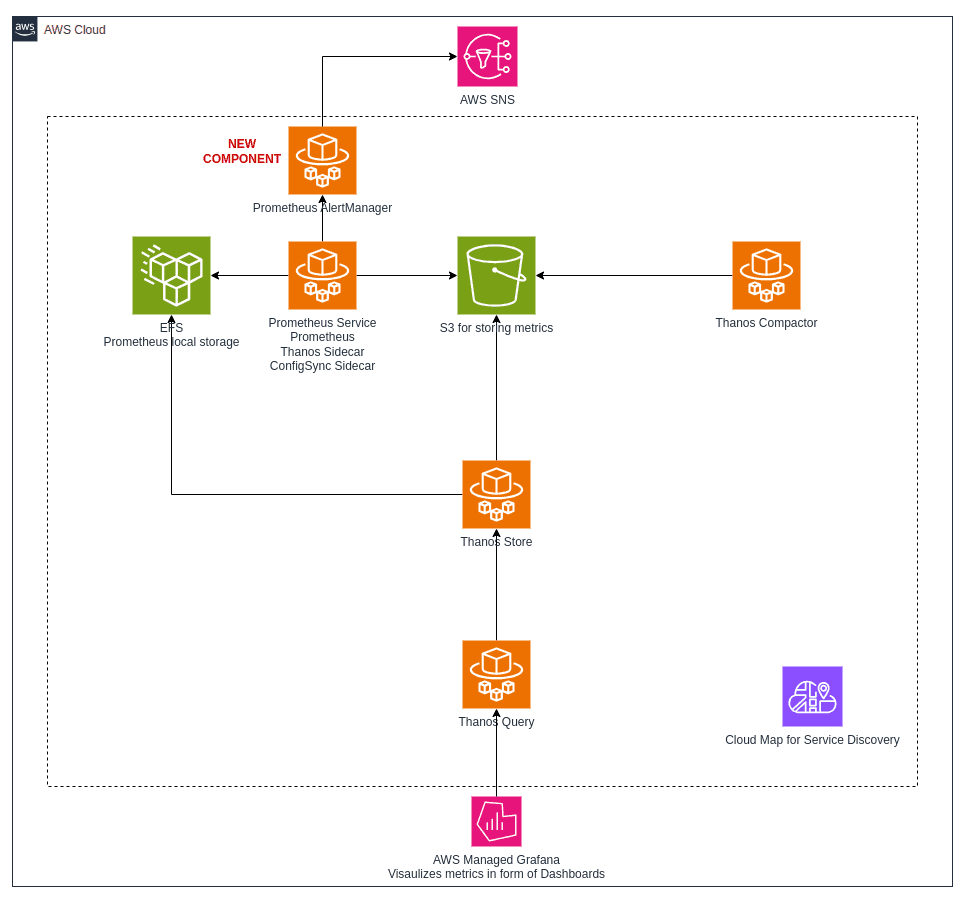Why European Companies Should Rethink Their Dependence on U.S. Cloud Providers
In this blogpost we will examine the key risks and considerations when using U.S. cloud providers and when a European alternative might be a better fit.
Apr 2, 2025

Yaron Tal
Cloud Engineer
European companies rely on the cloud to stay competitive, but the choice of provider isn’t just about performance or cost; it's also about weighing risks. Should they trust U.S. hyperscalers like AWS, Azure, and Google Cloud, even though this exposes them to more risks? Or should they go for European alternatives, even if if they lack the scale and features? The answer isn’t simple.
At Skyworkz, we help companies evaluate these choices, ensuring that cloud strategies align with both business goals and legal requirements. In this post, we will examine the key risks and considerations when using U.S. cloud providers and when a European alternative might be a better fit.

Understanding the Risks of U.S.-Based Cloud Providers
While American hyper-cloud providers dominate the market, their use comes with possible drawbacks for European companies. These risks should be taken into account as part of any cloud strategy.
Regulatory and Compliance Challenges
The CLOUD Act and FISA 702: These U.S. laws dictate that U.S. authorities can demand access to data stored by U.S. companies, even if that data resides in Europe. This raises some very big issues for companies handling sensitive information. Multiple EU countries have expressed their concerns about these laws or have, in response, even created laws that ban the use of U.S. companies in some cases (e.g. French ministries) in response to these laws.
GDPR and Schrems II: European data protection laws require that personal data be processed in compliance with strict rules. The Schrems II ruling invalidated the Privacy Shield agreement, increasing legal uncertainty around data transfers to the U.S.. Privacy shield has been superseded by the EU-VS Data Privacy Framework, but this seems to provide little more guarantee than its predecessors. Meta was fined €1.2 billion for transferring EU user data to the U.S. without sufficient safeguards, illustrating the very real consequences of non-compliance.
Geopolitical and Business Risks
Geopolitical Tensions: While the U.S. and Europe have strong economic ties, trade disputes, political shifts, or regulatory changes could impact cloud services and costs. The recent erratic behavior of the U.S. government has not helped in this regard.
Vendor Lock-In and Pricing: U.S. hyperscalers dominate the market, meaning companies could face unexpected price increases or service limitations if they rely too much on a single provider.
Technical and Operational Considerations
Latency and Performance: U.S. cloud providers have extensive infrastructure in Europe, but for companies requiring strict data residency or ultra-low latency, a European provider may be preferable.
Support and Local Expertise: European cloud providers may offer better local support and compliance assistance tailored to regional regulations.

When Does a European Cloud Provider Make Sense?
For some companies, the risks listed abovethese risks are just too big and other, non-US cloud solutions need to be found. European cloud providers (such as OVH, Scaleway, or Deutsche Telekom) offer GDPR-compliant alternatives with full data sovereignty.
Consider a European provider if:
You handle highly sensitive or regulated data. Industries like healthcare, finance, or governmentministries may haverequire strict data residency controls.
You want to reduce legal uncertainty. European providers operate under EU jurisdiction and are thus impervious to, so are out of scope of U.S. data laws.
You need compliance expertise and support on EU issues. EU providers often offer compliance solutions that are tailoredmade for the EU market and can provide customer support in your time zone.
However, these benefits must be weighed against potential downsides: smaller European providers may not match the scale, worldwide presence, or extensive service offerings of U.S. hyperscalers. I'm not going to goget into depth on this one now, as this is a topic for a next blog post, but it is a very important one to keep in mind.

Balancing your Risks: A Case-by-Case Approach
At Skyworkz, we believe the best cloud strategy is not one-size-fits-all. The right choice depends on:
Risk Appetite: How much regulatory or geopolitical risk is acceptable for your company?
Technical Expertise: Do you have the in-house capability to manage a multi-cloud or hybrid approach and can you handle the extra burden of relying on lower abstraction-level services?
Business Priorities: Are cost, performance, or compliance your top concerns?
Many larger companies find that a multi-cloud or hybrid strategy is the best approach:, leveraging the innovation and scale of U.S. cloud providers while keeping critical workloads on European infrastructure for compliance and risk mitigation.
Smaller companies, or startups on the other hand, often try to keep things simple and choose to use a single U.S.-based cloud environment. This exposes them to some extra risks, but this is acceptable for most, especially if the alternative adds time-to-market and cost.
Conclusion: Choosing the Right Cloud Strategy with Skyworkz
The cloud landscape is constantly changing, and European companies must find their way in a labyrinth of compliance, security, and operational challenges. While U.S.-based hyper-cloud providers offer a lot of features, they also come with some very real risks.
At Skyworkz, we help companies design cloud strategies that are secure, compliant, and aligned with their unique needs. Whether that means embracing a European cloud provider, adopting a multi-cloud strategy, or managing risk within a U.S. cloud environment, we provide expert guidance to help you pick the best strategy.
Want to assess your cloud risks and opportunities? Let's talk. Reach out to us to discuss what the best solution is for your company.



